Recordings of the live sessions held during the Second year of BISMiS Live are given below along with the speaker's biography.
Subscribe to our YouTube Channel for the Live Stream and concluded sessions.
Inaugural Session- February 19, 2022
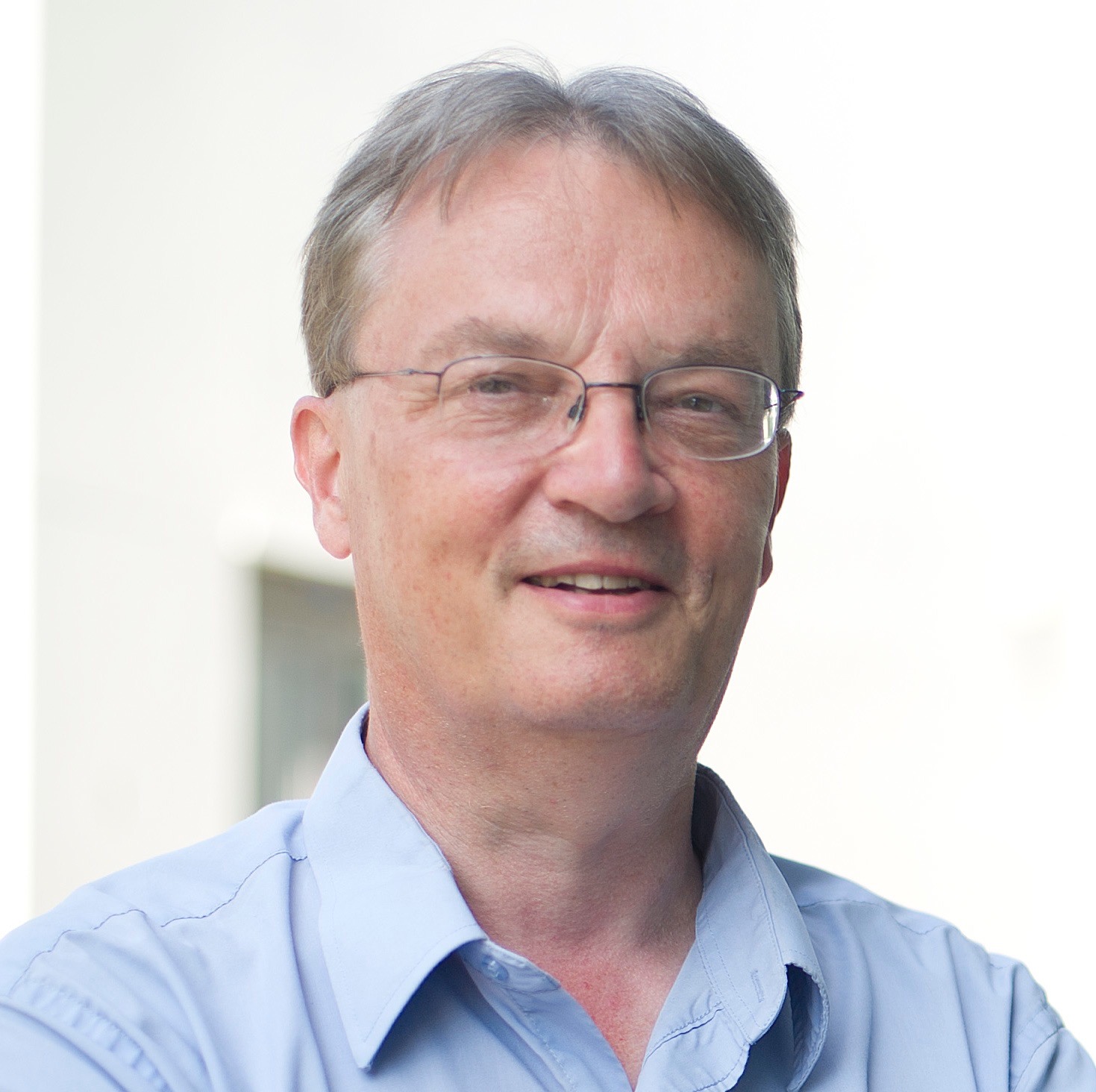 Speaker: Prof. Mark Pallen, Quadram Institute & University of East Anglia
Title of the Talk: Nomenclature of Archaea and Bacteria in the age of genomics: from pedantry to pragmatism
Biosketch: Mark Pallen is Professor of Microbial Genomics at the University of East Anglia and a Research Group Leader at the Quadram Institute in Norwich, UK. For two decades, Pallen has been at the forefront of efforts to apply sequencing and bioinformatics to a range of problems in microbiology, including genomic epidemiology of pathogens and the application of metagenomics in clinical and veterinary microbiology and in ancient DNA research. Recently, Pallen has broken new ground in applying Linnaean binomials to hundreds of new species from animal gut microbiomes and in devising creative new approaches to the generation of new taxonomic names en masse. He has advised the WHO on the use of names for SARS-CoV2 Variants of Concern and helped bacteriophage experts develop hundreds of new names for viral species. Pallen is director of the microbiology cloud-computing CLIMB-BIG- DATA project (https://climb.ac.uk) and of the doctoral training programme, Microbes, Microbiomes and Bioinformatics (https://uea.ac.uk/phd/mmbdtp)
Recorded Session: Watch Here
Speaker: Prof. Mark Pallen, Quadram Institute & University of East Anglia
Title of the Talk: Nomenclature of Archaea and Bacteria in the age of genomics: from pedantry to pragmatism
Biosketch: Mark Pallen is Professor of Microbial Genomics at the University of East Anglia and a Research Group Leader at the Quadram Institute in Norwich, UK. For two decades, Pallen has been at the forefront of efforts to apply sequencing and bioinformatics to a range of problems in microbiology, including genomic epidemiology of pathogens and the application of metagenomics in clinical and veterinary microbiology and in ancient DNA research. Recently, Pallen has broken new ground in applying Linnaean binomials to hundreds of new species from animal gut microbiomes and in devising creative new approaches to the generation of new taxonomic names en masse. He has advised the WHO on the use of names for SARS-CoV2 Variants of Concern and helped bacteriophage experts develop hundreds of new names for viral species. Pallen is director of the microbiology cloud-computing CLIMB-BIG- DATA project (https://climb.ac.uk) and of the doctoral training programme, Microbes, Microbiomes and Bioinformatics (https://uea.ac.uk/phd/mmbdtp)
Recorded Session: Watch Here
12th Session- March 19, 2022
 Speaker: Prof. William Whitman, Department of Microbiology, University of Georgia
Title of the Talk: Why we need the International Code of Nomenclature of Prokaryotes Described from Sequence Data or the SeqCode
Biosketch: I received my Ph.D from The University of Texas at Austin studying autotrophy in phototrophic bacteria in 1978. Since then, my research has focused on the physiology, systematics and ecology of environmentally important microorganisms. Of special interest is to understand the complete organism, from the biochemical mechanisms it uses to accomplish its day-to-day tasks of living to its interactions with other organisms and its environment. In this context, my work has focused on the methane-producing archaeon Methanococcus, DMSP metabolism in the marine bacterium Ruegeria, and the soil microbiome. I also served as an associate editor of the International Journal of Systematic and Evolutionary Microbiology, 1995-2001; Supervising Editor of Bergey’s Manual of Systematics of Archaea and Bacteria, 2006-2019; Treasurer of International Committee for Systematics of Prokaryotes, 2014-2000; and Treasurer of Bergey’s International Society for Microbial Systematics, 2010-2020.
Recorded Session: Watch Here
Speaker: Prof. William Whitman, Department of Microbiology, University of Georgia
Title of the Talk: Why we need the International Code of Nomenclature of Prokaryotes Described from Sequence Data or the SeqCode
Biosketch: I received my Ph.D from The University of Texas at Austin studying autotrophy in phototrophic bacteria in 1978. Since then, my research has focused on the physiology, systematics and ecology of environmentally important microorganisms. Of special interest is to understand the complete organism, from the biochemical mechanisms it uses to accomplish its day-to-day tasks of living to its interactions with other organisms and its environment. In this context, my work has focused on the methane-producing archaeon Methanococcus, DMSP metabolism in the marine bacterium Ruegeria, and the soil microbiome. I also served as an associate editor of the International Journal of Systematic and Evolutionary Microbiology, 1995-2001; Supervising Editor of Bergey’s Manual of Systematics of Archaea and Bacteria, 2006-2019; Treasurer of International Committee for Systematics of Prokaryotes, 2014-2000; and Treasurer of Bergey’s International Society for Microbial Systematics, 2010-2020.
Recorded Session: Watch Here
13th Session- April 16, 2022
Special Dialogue on "SeqCode: an alternative code for naming the uncultivated"
Moderated by Prof. Iain Sutcliffe, Department of Microbiology, Northumbria University
Team A
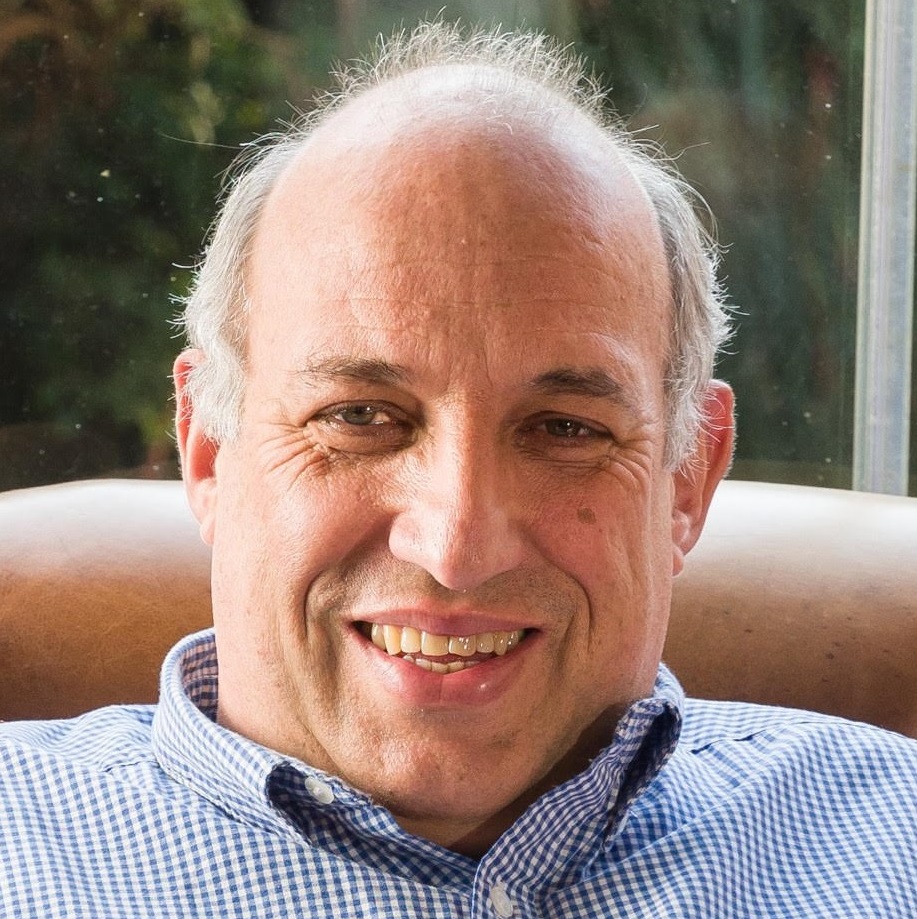 Prof. Fanus Venter, Forestry and Agricultural Biotechnology Institute, University of Pretoria
Biosketch: Fanus Venter is a professor in the Department of Biochemistry, Genetics and Microbiology at the University of Pretoria, South Africa. He is also Deputy Director of the Forestry and Agricultural Biotechnology Institute (FABI). The main focus of his research is bacterial evolution, systematics and diversity. Through the use of comparative genomics, his research attempts to understand the functions, biology and evolution of bacteria associated with plants and aquatic environments. His current focus related to bacterial systematics is on the nitrogen-fixing Burkholderia and Bradyrhizobium species isolated from indigenous legumes in South Africa. His research group has already described several new species belonging to these genera. In addition to his research interests, Prof Venter is a member of several national and international scientific associations. He is the South African ambassador the International Society for Microbial Ecology (ISME), he is a Council member of the Southern African Society for Systematic Biology and is member of the International Committee on Systematics of Prokaryotes. He is also part of the group involved in the establishment of the SeqCode. He is associate editor of the International Journal of Systematic and Evolutionary Microbiology and Systematics and Applied Microbiology as well as guest editor for the Bergey’s Manual of Systematic Bacteriology.
Prof. William Whitman, Department of Microbiology, University of Georgia
Biosketch: Given above as he was the speaker at the previous session
Team B
Prof. Fanus Venter, Forestry and Agricultural Biotechnology Institute, University of Pretoria
Biosketch: Fanus Venter is a professor in the Department of Biochemistry, Genetics and Microbiology at the University of Pretoria, South Africa. He is also Deputy Director of the Forestry and Agricultural Biotechnology Institute (FABI). The main focus of his research is bacterial evolution, systematics and diversity. Through the use of comparative genomics, his research attempts to understand the functions, biology and evolution of bacteria associated with plants and aquatic environments. His current focus related to bacterial systematics is on the nitrogen-fixing Burkholderia and Bradyrhizobium species isolated from indigenous legumes in South Africa. His research group has already described several new species belonging to these genera. In addition to his research interests, Prof Venter is a member of several national and international scientific associations. He is the South African ambassador the International Society for Microbial Ecology (ISME), he is a Council member of the Southern African Society for Systematic Biology and is member of the International Committee on Systematics of Prokaryotes. He is also part of the group involved in the establishment of the SeqCode. He is associate editor of the International Journal of Systematic and Evolutionary Microbiology and Systematics and Applied Microbiology as well as guest editor for the Bergey’s Manual of Systematic Bacteriology.
Prof. William Whitman, Department of Microbiology, University of Georgia
Biosketch: Given above as he was the speaker at the previous session
Team B
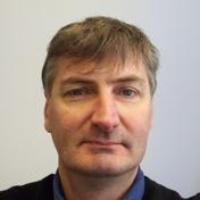 Prof. Henrik Christensen, Department of Veterinary and Animal Sciences, University of Copenhagen
Biosketch: I have been investigating evolution and systematics of prokaryotes since 1991. The main part of my research has dealt with prokaryotic systematics and other areas have been within population genetics, soil microbiology and veterinary microbiology. The taxonomic focus has mainly been on members of Pasteurellaceae and other bacteria of clinical importance. As the chair of the International Committee of Systematics of Prokaryotes Subcommittee ICSP) on Pasteurellaceae, member of Judicial Commission of ICSP and editor of International Journal of Systematic and Evolutionary Microbiology I have already gained a lot of experience with prokaryotic systematics and hope to learn more in the future.
Lab Website: https://pasteurellaceae.eu/
Prof. Henrik Christensen, Department of Veterinary and Animal Sciences, University of Copenhagen
Biosketch: I have been investigating evolution and systematics of prokaryotes since 1991. The main part of my research has dealt with prokaryotic systematics and other areas have been within population genetics, soil microbiology and veterinary microbiology. The taxonomic focus has mainly been on members of Pasteurellaceae and other bacteria of clinical importance. As the chair of the International Committee of Systematics of Prokaryotes Subcommittee ICSP) on Pasteurellaceae, member of Judicial Commission of ICSP and editor of International Journal of Systematic and Evolutionary Microbiology I have already gained a lot of experience with prokaryotic systematics and hope to learn more in the future.
Lab Website: https://pasteurellaceae.eu/
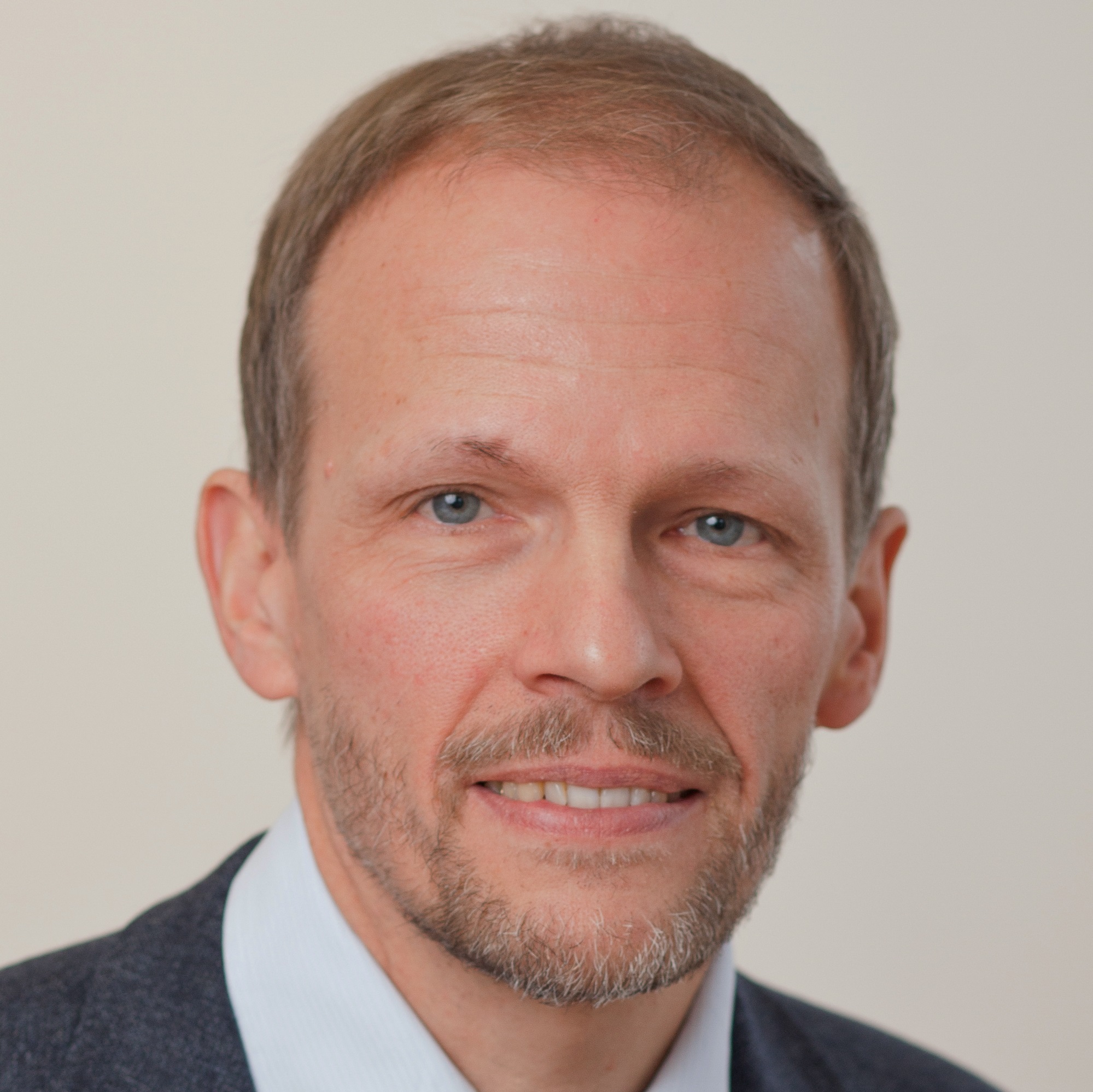 Prof. Dr. Jörg Overmann, Leibniz-Institut DSMZ, Germany
Biosketch: Jörg Overmann studied Biology at the Universities of Bochum and Freiburg and obtained his Ph.D. in Microbiology in 1991 at the University of Konstanz. His thesis received the Ph.D. Award of the German Association for General and Applied Microbiology (VAAM). After a postdoctoral stay at the University of British Colombia, Canada, he joined the Universität Oldenburg where he obtained his Habilitation in 1999. From 2000 until 2010, he was professor of microbiology at the Ludwig-Maximilians-Universität München where he also served as Director of the Department Biology. In 2010, he became Director of the Leibniz-Institut DSMZ-Deutsche Sammlung von Mikroorganismen und Zellkulturen in Braunschweig and full professor of microbiology at the Braunschweig University of Technology. His main research interests are bacterial functional diversity, bacterial population genomics and speciation, and the molecular basis of microbial interactions. Prof. Overmann received the Inaugural Douglas Leigh Lecturer Award of the Waksman Foundation for Microbiology in 2013, is currently appointed member of the Permanent Senate Commission on Fundamental Issues of Biological Diversity of the DFG, and of the Council of Scientists of the Human Frontier Science Program Organization (Strasbourg, France). He also serves in the supervisory boards and scientific advisory boards of several national and international institutions.
Lab Website: https://www.dsmz.de/research/microbial-ecology-and-diversity-research
Recorded Session: Watch here
Prof. Dr. Jörg Overmann, Leibniz-Institut DSMZ, Germany
Biosketch: Jörg Overmann studied Biology at the Universities of Bochum and Freiburg and obtained his Ph.D. in Microbiology in 1991 at the University of Konstanz. His thesis received the Ph.D. Award of the German Association for General and Applied Microbiology (VAAM). After a postdoctoral stay at the University of British Colombia, Canada, he joined the Universität Oldenburg where he obtained his Habilitation in 1999. From 2000 until 2010, he was professor of microbiology at the Ludwig-Maximilians-Universität München where he also served as Director of the Department Biology. In 2010, he became Director of the Leibniz-Institut DSMZ-Deutsche Sammlung von Mikroorganismen und Zellkulturen in Braunschweig and full professor of microbiology at the Braunschweig University of Technology. His main research interests are bacterial functional diversity, bacterial population genomics and speciation, and the molecular basis of microbial interactions. Prof. Overmann received the Inaugural Douglas Leigh Lecturer Award of the Waksman Foundation for Microbiology in 2013, is currently appointed member of the Permanent Senate Commission on Fundamental Issues of Biological Diversity of the DFG, and of the Council of Scientists of the Human Frontier Science Program Organization (Strasbourg, France). He also serves in the supervisory boards and scientific advisory boards of several national and international institutions.
Lab Website: https://www.dsmz.de/research/microbial-ecology-and-diversity-research
Recorded Session: Watch here
14th Session- May 21, 2022
Special Dialogue on "Implications of including the rank of phyla in the rules of ICNP"
Moderated by Prof. Brian Hedlund, School of Life Sciences, University of Nevada- Las Vegas
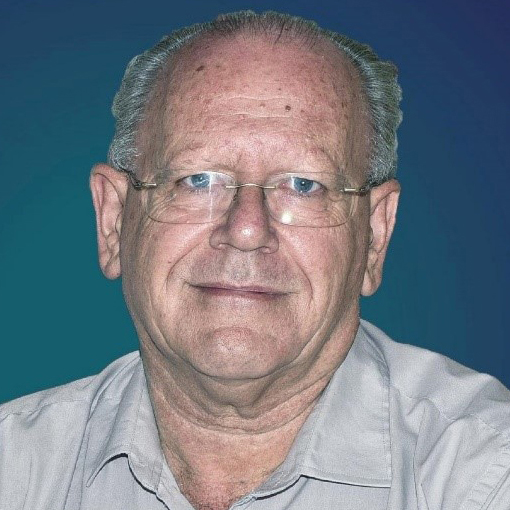 Speaker: Prof. Aharon Oren, The Hebrew University of Jerusalem
Title of the Talk: Valid publication of names of prokaryotic phyla - finally!
Biosketch: Aharon did his Masters in Biochemsitry and Microbiology from the University of Groningen at The Netherlands, then moved to Israel for PhD (1979) from the Hebrew University of Jerusalem. From 1982 to 84, he completed postdoctoral studies at the University of Illinois at Urbana-Champaign, after which he joined as a faculty member at the Hebrew University of Jerusalem. He is the Executive Secretary and past Chair of the International Committee on Systematics of Prokaryotes (ICSP); Editor-in-Chief for the International Code of Nomenclature of Prokaryotes; and Editor for International Journal of Systematic and Evolutionary Microbiology, Bergey’s Manual of Systematics of Archaea and Bacteria, FEMS Microbiology Letters, Systematic and Applied Microbiology, Extremophiles, and more. Read more...
Speaker: Prof. Aharon Oren, The Hebrew University of Jerusalem
Title of the Talk: Valid publication of names of prokaryotic phyla - finally!
Biosketch: Aharon did his Masters in Biochemsitry and Microbiology from the University of Groningen at The Netherlands, then moved to Israel for PhD (1979) from the Hebrew University of Jerusalem. From 1982 to 84, he completed postdoctoral studies at the University of Illinois at Urbana-Champaign, after which he joined as a faculty member at the Hebrew University of Jerusalem. He is the Executive Secretary and past Chair of the International Committee on Systematics of Prokaryotes (ICSP); Editor-in-Chief for the International Code of Nomenclature of Prokaryotes; and Editor for International Journal of Systematic and Evolutionary Microbiology, Bergey’s Manual of Systematics of Archaea and Bacteria, FEMS Microbiology Letters, Systematic and Applied Microbiology, Extremophiles, and more. Read more...
 Speaker: Dr. Karen Lloyd, University of Tennessee
Title of the Talk: A non-taxonomist and non-nomenclaturist’s plea for stability and deference to precedent in microbial names.
Biosketch: Karen G. Lloyd is an Associate Professor in the Microbiology Department at the University of Tennessee. Her research combines geochemistry and multi-omics techniques to infer microbiological functions in subsurface environments such as deep subseafloor sediments, terrestrial hot springs in subduction zones, marine methane seeps, and Arctic permafrost.
Recorded Session: Watch Here
Speaker: Dr. Karen Lloyd, University of Tennessee
Title of the Talk: A non-taxonomist and non-nomenclaturist’s plea for stability and deference to precedent in microbial names.
Biosketch: Karen G. Lloyd is an Associate Professor in the Microbiology Department at the University of Tennessee. Her research combines geochemistry and multi-omics techniques to infer microbiological functions in subsurface environments such as deep subseafloor sediments, terrestrial hot springs in subduction zones, marine methane seeps, and Arctic permafrost.
Recorded Session: Watch Here
15th Session- June 18, 2022
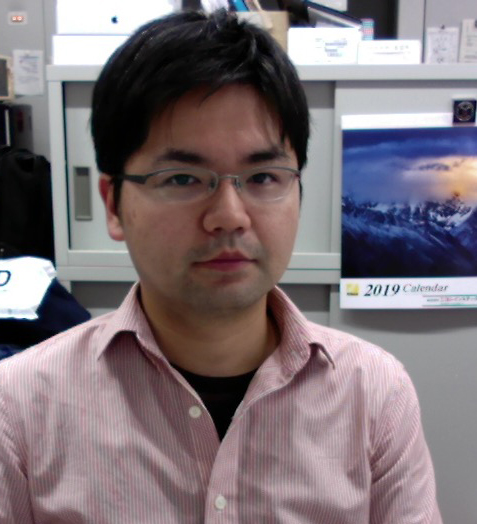 Speaker: Dr. Taiki Katayama, Geological Survey of Japan, National Institute of Advanced Industrial Science and Technology
Title of the Talk: Cultivation and characterization of a member of novel bacterial phylum Atribacterota (formely OP9 or Atribacteria)
Biosketch: I am a senior research scientist in National Institute of Advanced Industrial Science and Technology (AIST), Japan. I received my Ph.D degree from the Hokkaido University studying psychrophilic bacteria in permafrost in 2009. I joined at AIST as a postdoc followed by research scientist. One of my research objective is to elucidate the physiology and ecology of microorganisms in deep biosphere, especially those associated with biological methane production, by cultivation methods.
Recorded Session: Watch Here
Speaker: Dr. Taiki Katayama, Geological Survey of Japan, National Institute of Advanced Industrial Science and Technology
Title of the Talk: Cultivation and characterization of a member of novel bacterial phylum Atribacterota (formely OP9 or Atribacteria)
Biosketch: I am a senior research scientist in National Institute of Advanced Industrial Science and Technology (AIST), Japan. I received my Ph.D degree from the Hokkaido University studying psychrophilic bacteria in permafrost in 2009. I joined at AIST as a postdoc followed by research scientist. One of my research objective is to elucidate the physiology and ecology of microorganisms in deep biosphere, especially those associated with biological methane production, by cultivation methods.
Recorded Session: Watch Here
16th Session- July 16, 2022
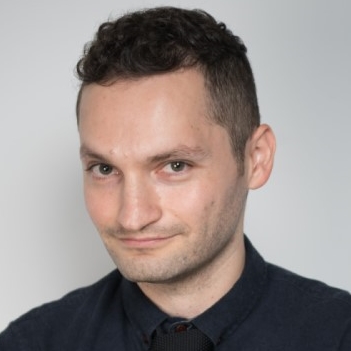 Speaker: Dr. Mauricio Chalita, CJ Bioscience, Republic of Korea
Title of the Talk: EzBioCloud: an evidence-based sequence identity database for microbial drug discovery
Biosketch: Mauricio Chalita, a computer scientist, attended Seoul National University, where he received his Ph.D. degree in Bioinformatics and developed a high interest in new methods for shotgun metagenomics analysis. In 2017, he started working for Chunlab Inc., the creators of EzBioCloud, where he developed new methods for the analysis of shotgun metagenomic data, focusing on accurate abundance prediction of prokaryotic organisms. In 2021, Chunlab Inc. joined the conglomerate CJ in South Korea, re-naming the company to CJ Bioscience, which focuses on microbial drug discovery. Currently, he is the head of bioinformatics at CJ Bioscience leading the development of a new multi-omics drug discovery platform.
Website: https://www.ezbiocloud.net/
Recorded Session: Watch Here
Speaker: Dr. Mauricio Chalita, CJ Bioscience, Republic of Korea
Title of the Talk: EzBioCloud: an evidence-based sequence identity database for microbial drug discovery
Biosketch: Mauricio Chalita, a computer scientist, attended Seoul National University, where he received his Ph.D. degree in Bioinformatics and developed a high interest in new methods for shotgun metagenomics analysis. In 2017, he started working for Chunlab Inc., the creators of EzBioCloud, where he developed new methods for the analysis of shotgun metagenomic data, focusing on accurate abundance prediction of prokaryotic organisms. In 2021, Chunlab Inc. joined the conglomerate CJ in South Korea, re-naming the company to CJ Bioscience, which focuses on microbial drug discovery. Currently, he is the head of bioinformatics at CJ Bioscience leading the development of a new multi-omics drug discovery platform.
Website: https://www.ezbiocloud.net/
Recorded Session: Watch Here
17th Session- September 17, 2022
 Speaker: Dr. Maria Chuvochina, Australian Centre for Ecogenomics, University of Queensland
Title of the Talk: Short lessons on the etymology of prokaryotic species or when Latin is not your mother tongue
Biosketch: Maria is a molecular microbiologist who turned herself into one of the internationally recognised experts on prokaryotic nomenclature following her interests in formation and application of names. She obtained her doctoral degree in 2011 from the Nuclear Physics Institute in Russia and the University of Grenoble in France. She further acquired most of her professional experience at the University of Queensland in Australia where she still works as a principal taxonomic curator of the Genome Taxonomy Database (or GTDB) for which she overviews all nomenclature related issues and assists in development and validation of curation tools and criteria. Maria is a member of the Judicial Commission of International Committee on Systematics of Prokaryotes and she also played critical role in development of the recently established SeqCode which is aimed to facilitate naming, specifically for uncultured taxa. Together with Prof. Phil Hugenholtz and the rest of GTDB team she continues to pursue the goal of unified taxonomic framework for all prokaryotic taxa.
Recorded Session: Watch Here
Speaker: Dr. Maria Chuvochina, Australian Centre for Ecogenomics, University of Queensland
Title of the Talk: Short lessons on the etymology of prokaryotic species or when Latin is not your mother tongue
Biosketch: Maria is a molecular microbiologist who turned herself into one of the internationally recognised experts on prokaryotic nomenclature following her interests in formation and application of names. She obtained her doctoral degree in 2011 from the Nuclear Physics Institute in Russia and the University of Grenoble in France. She further acquired most of her professional experience at the University of Queensland in Australia where she still works as a principal taxonomic curator of the Genome Taxonomy Database (or GTDB) for which she overviews all nomenclature related issues and assists in development and validation of curation tools and criteria. Maria is a member of the Judicial Commission of International Committee on Systematics of Prokaryotes and she also played critical role in development of the recently established SeqCode which is aimed to facilitate naming, specifically for uncultured taxa. Together with Prof. Phil Hugenholtz and the rest of GTDB team she continues to pursue the goal of unified taxonomic framework for all prokaryotic taxa.
Recorded Session: Watch Here
18th Session- October 15, 2022
 Speaker: Prof. Patrick Forterre, Department of Microbiology, Institut Pasteur
Title of the Talk: The position of Asgard Archaea in the tree of life: evidences for ancient genes exchange between Asgard and proto-eukaryotes
Biosketch: Patrick Forterre started working on DNA replication and DNA topology in Bacteria. Inspired by Carl Woese’s work, he turned out to study these mechanisms in Archaea (formerly archaebacteria). His first major contribution was the characterization of reverse gyrase, a novel type of DNA topoisomerase that introduces positive superturns into DNA. He could show that reverse gyrase is the only protein essential for life at high temperature. Patrick Forterre defended his Habilitation in 1985 at the University of Paris VII and become Professor at the University of Orsay where he set up his own laboratory in 1989. In 1997, his team discovered the enzyme that triggers meiotic recombination in eukaryotes, SPO11, thanks to their work on archaeal DNA topoisomerase. In 2000, they identified the first DNA replication origin in Archaea. Patrick Forterre was then selected among the few invited speakers at the meeting organized when Carl Woese received the Crafoord prize in 2003 in Stockholm.
In 2004, Patrick Forterre became head of the Microbiology Department at the Insitut Pasteur in Paris. He set up in this Institute a new laboratory while still running his laboratory in Orsay. He invited David Prangishvili to work with him on archaeal viruses in Pasteur. They described several new viral families and a fascinating new mechanism of virus egress. Patrick Forterre thought that the importance of viruses was underestimated because they were confused with the virion. He proposed the concept of virocell that posits that viruses transform the infected cell into a new type of cellular organism. In 2014, he received a five years ERC award to study virus-like vesicles in Archaea.
The interest of Patrick Forterre for Archaea was early on boosted by their pivotal position in the universal tree of life. He promoted the name LUCA, for the Last Universal Common Ancestor. More recently, he revisited with his coworkers Violette Da Cunha and Morgan Gaia the phylogenies sugggesting that eukaryotes originated from Asgard archaea. Their work supports instead the classical Woese’s tree of life and suggest ancient gene exchanges between Asgard and the ancestors of modern eukaryotes. Patrick Forterre is presently honorary professor at the Institut Pasteur and emeritus Professor at the University Paris-Saclay.
Recorded Session: Watch Here
Speaker: Prof. Patrick Forterre, Department of Microbiology, Institut Pasteur
Title of the Talk: The position of Asgard Archaea in the tree of life: evidences for ancient genes exchange between Asgard and proto-eukaryotes
Biosketch: Patrick Forterre started working on DNA replication and DNA topology in Bacteria. Inspired by Carl Woese’s work, he turned out to study these mechanisms in Archaea (formerly archaebacteria). His first major contribution was the characterization of reverse gyrase, a novel type of DNA topoisomerase that introduces positive superturns into DNA. He could show that reverse gyrase is the only protein essential for life at high temperature. Patrick Forterre defended his Habilitation in 1985 at the University of Paris VII and become Professor at the University of Orsay where he set up his own laboratory in 1989. In 1997, his team discovered the enzyme that triggers meiotic recombination in eukaryotes, SPO11, thanks to their work on archaeal DNA topoisomerase. In 2000, they identified the first DNA replication origin in Archaea. Patrick Forterre was then selected among the few invited speakers at the meeting organized when Carl Woese received the Crafoord prize in 2003 in Stockholm.
In 2004, Patrick Forterre became head of the Microbiology Department at the Insitut Pasteur in Paris. He set up in this Institute a new laboratory while still running his laboratory in Orsay. He invited David Prangishvili to work with him on archaeal viruses in Pasteur. They described several new viral families and a fascinating new mechanism of virus egress. Patrick Forterre thought that the importance of viruses was underestimated because they were confused with the virion. He proposed the concept of virocell that posits that viruses transform the infected cell into a new type of cellular organism. In 2014, he received a five years ERC award to study virus-like vesicles in Archaea.
The interest of Patrick Forterre for Archaea was early on boosted by their pivotal position in the universal tree of life. He promoted the name LUCA, for the Last Universal Common Ancestor. More recently, he revisited with his coworkers Violette Da Cunha and Morgan Gaia the phylogenies sugggesting that eukaryotes originated from Asgard archaea. Their work supports instead the classical Woese’s tree of life and suggest ancient gene exchanges between Asgard and the ancestors of modern eukaryotes. Patrick Forterre is presently honorary professor at the Institut Pasteur and emeritus Professor at the University Paris-Saclay.
Recorded Session: Watch Here
19th Session- November 19, 2022
 Speaker: Dr. Luis M. Rodriguez-R, Department of Microbiology & Digital Science Center (DiSC), University of Innsbruck
Title of the Talk: The SeqCode Registry, a semi-automated platform for the proposal and exploration of names of prokaryotes described from sequence data
Biosketch: My main research interest is the understanding of eco-evolutionary principles governing microbial communities: evolutionary and ecologic forces shaping populations and their metabolic potential,
their interactions with other species, their hosts, and the environment, and the role of stochasticity. In the pursuit of these questions, I’ve garnered ample experience on genomic and metagenomic
analyses in environmental, clinical, agricultural, and engineered settings, including the description, characterization, modeling, and simulation of microbial communities and populations.
I’ve explored and discussed both theoretical and practical problems on microbiome analysis including the development and application of methods on phylogenomics, taxonomy of
prokaryotes, metabolic modeling, statistical techniques, and sequence analyses. I’ve developed tens of bioinformatic tools and web interfaces including grid and cloud computing in a variety of
programming languages and frameworks (Ruby, Rails, Perl, R, C++, etc) with over 10,000 downloads or online queries per month, available at https://rodriguez-r.com/software.
Recorded Session: Watch Here
Speaker: Dr. Luis M. Rodriguez-R, Department of Microbiology & Digital Science Center (DiSC), University of Innsbruck
Title of the Talk: The SeqCode Registry, a semi-automated platform for the proposal and exploration of names of prokaryotes described from sequence data
Biosketch: My main research interest is the understanding of eco-evolutionary principles governing microbial communities: evolutionary and ecologic forces shaping populations and their metabolic potential,
their interactions with other species, their hosts, and the environment, and the role of stochasticity. In the pursuit of these questions, I’ve garnered ample experience on genomic and metagenomic
analyses in environmental, clinical, agricultural, and engineered settings, including the description, characterization, modeling, and simulation of microbial communities and populations.
I’ve explored and discussed both theoretical and practical problems on microbiome analysis including the development and application of methods on phylogenomics, taxonomy of
prokaryotes, metabolic modeling, statistical techniques, and sequence analyses. I’ve developed tens of bioinformatic tools and web interfaces including grid and cloud computing in a variety of
programming languages and frameworks (Ruby, Rails, Perl, R, C++, etc) with over 10,000 downloads or online queries per month, available at https://rodriguez-r.com/software.
Recorded Session: Watch Here
20th Session- December 17, 2022
 Speaker: Prof. Paul A. Lawson & Dr. Krithi Sankaranarayanan, Department of Microbiology and Plant Biology, University of Oklahoma
Title of the Talk: Genome inferred taxonomic analysis: beyond gene inventories
Biosketch: My foundational studies and training were under the guidance of Haroun Shah (PhD) and then for 14yrs with David Collins in Reading, UK where as a Senior Research Fellow I was exposed to a plethora of novel organisms and first cut my teeth with the genus Clostridium. My expertise in microbial systematics spans a 37-yr period and I have been responsible or associated with, the naming or reclassification of over 160 bacteria that includes 2 families, 40 genera and almost 100 species. The focus of much of my work is with the gastrointestinal tract of both man and animals. My major academic achievements in bacterial systematics includes a fundamental restructuring of the genus Clostridium and relatives, and the description of many novel taxa from environmental, clinical and veterinary sources. My record of success is demonstrated by my publication record (approx.200) that includes multiple chapters to Bergey’s Manual of Systematics of Archaea and Bacteria, chapters to Biodiversity and Taxonomy of the Lactic Acid Bacteria, The Prokaryotes and the Manual of Clinical Microbiology. From 2010 I was the Associate Editor of the Bulletin of BISMiS and served as Editor in Chief (2012-2019). In 2012, I was appointed to the Editorial Board as an Associate Editor of the International Journal of Systematic and Evolutionary Microbiology (IJSEM) (retired 2019). From 2015 I have taken an active role in the use of in-silico methods to identify and predict chemotaxonomic biomarkers within the genomes of microorganisms. I believe my passion for my subject matter is not only reflected in my research program but also in my active teaching program that extends beyond lectures to the teaching laboratory. In 2018 I was a recipient of a Fulbright Scholar Award in 2021 was awarded the President’s Associates Presidential Professor here at the University of Oklahoma.
Recorded Session: Watch Here
Speaker: Prof. Paul A. Lawson & Dr. Krithi Sankaranarayanan, Department of Microbiology and Plant Biology, University of Oklahoma
Title of the Talk: Genome inferred taxonomic analysis: beyond gene inventories
Biosketch: My foundational studies and training were under the guidance of Haroun Shah (PhD) and then for 14yrs with David Collins in Reading, UK where as a Senior Research Fellow I was exposed to a plethora of novel organisms and first cut my teeth with the genus Clostridium. My expertise in microbial systematics spans a 37-yr period and I have been responsible or associated with, the naming or reclassification of over 160 bacteria that includes 2 families, 40 genera and almost 100 species. The focus of much of my work is with the gastrointestinal tract of both man and animals. My major academic achievements in bacterial systematics includes a fundamental restructuring of the genus Clostridium and relatives, and the description of many novel taxa from environmental, clinical and veterinary sources. My record of success is demonstrated by my publication record (approx.200) that includes multiple chapters to Bergey’s Manual of Systematics of Archaea and Bacteria, chapters to Biodiversity and Taxonomy of the Lactic Acid Bacteria, The Prokaryotes and the Manual of Clinical Microbiology. From 2010 I was the Associate Editor of the Bulletin of BISMiS and served as Editor in Chief (2012-2019). In 2012, I was appointed to the Editorial Board as an Associate Editor of the International Journal of Systematic and Evolutionary Microbiology (IJSEM) (retired 2019). From 2015 I have taken an active role in the use of in-silico methods to identify and predict chemotaxonomic biomarkers within the genomes of microorganisms. I believe my passion for my subject matter is not only reflected in my research program but also in my active teaching program that extends beyond lectures to the teaching laboratory. In 2018 I was a recipient of a Fulbright Scholar Award in 2021 was awarded the President’s Associates Presidential Professor here at the University of Oklahoma.
Recorded Session: Watch Here


















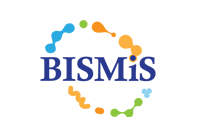



 Goals
Goals


